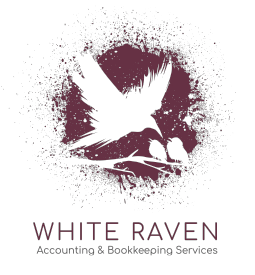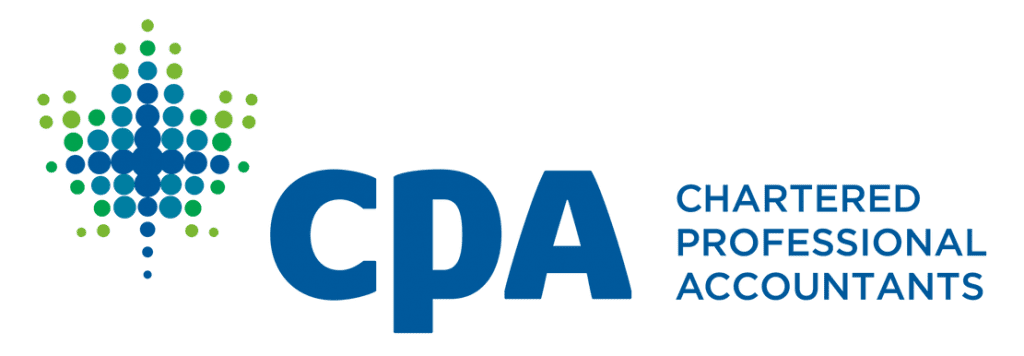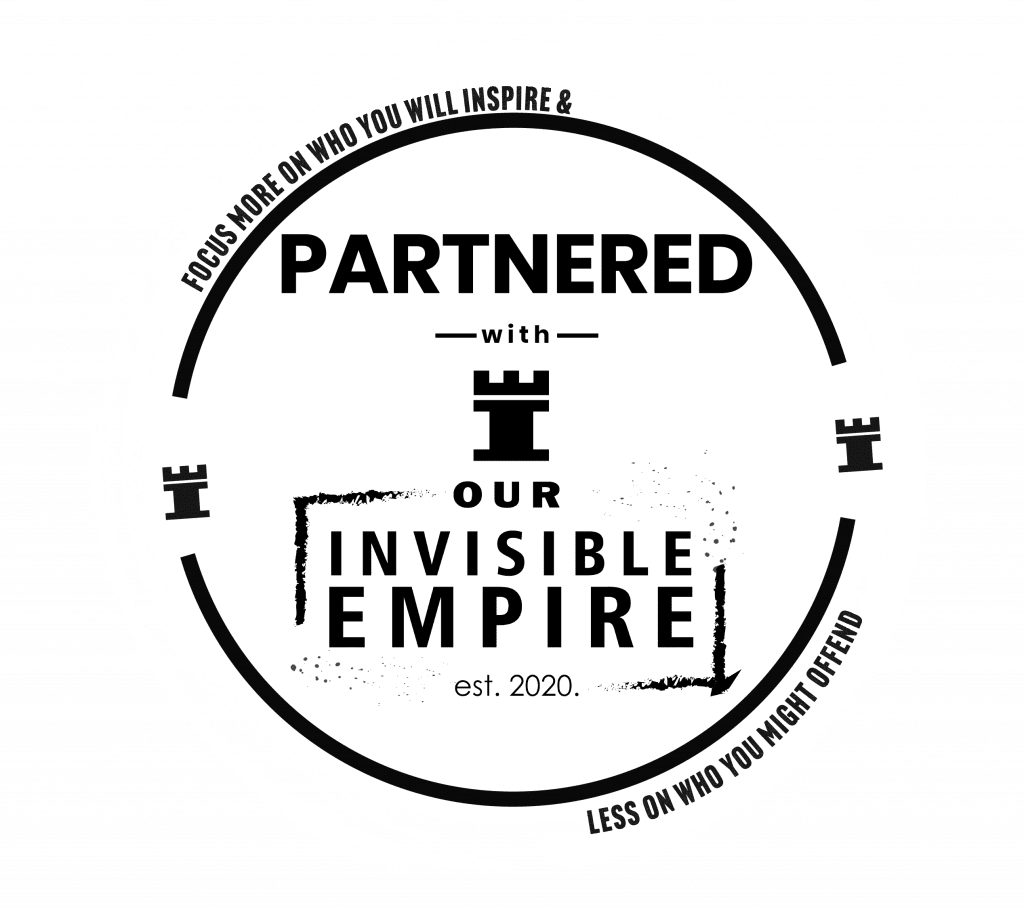Financial literacy is the foundation of financial success, empowering individuals to make informed decisions about earning, spending, saving, and investing. In today’s complex financial landscape, understanding key principles can help you achieve your goals, avoid costly mistakes, and build long-term wealth.
This guide will cover the essential concepts of financial literacy, including budgeting basics, core accounting terms, and managing debt effectively. You’ll also learn practical strategies for tracking your finances, creating an emergency fund, and leveraging tools like compound interest to your advantage.
Mastering financial literacy isn’t just about learning terms and formulas—it’s about taking control of your financial future. Let’s dive into the steps that will help you build smarter money habits and achieve lasting success. For readers seeking expert guidance, financial planning services can provide personalized strategies to support your goals.
What is Financial Literacy?
Financial literacy refers to the ability to understand and effectively use financial skills, including budgeting, saving, investing, and managing debt. It encompasses a wide range of knowledge, from basic financial concepts to more advanced strategies for wealth building.
Being financially literate means having the tools to make informed decisions about your money. Whether it’s creating a monthly budget, planning for retirement, or understanding how credit works, financial literacy equips you with the confidence and knowledge to navigate complex financial situations.
The Role of Financial Literacy in Success
Financial literacy plays a pivotal role in both personal and financial well-being. It helps individuals:
- Manage day-to-day expenses effectively to avoid debt and live within their means.
- Plan for the future, including saving for major life events such as purchasing a home, funding education, or retiring comfortably.
- Make informed decisions about investments and other opportunities to grow wealth over time.
Benefits of Improving Financial Literacy
Improving your financial literacy can transform your life in numerous ways:
- Reduced Stress and Anxiety: With a better understanding of finances, you can eliminate the uncertainty and worry associated with poor money management.
- Greater Financial Independence: Knowledge of financial tools and strategies empowers you to achieve long-term goals without relying heavily on external support.
- Improved Financial Security: From building emergency savings to managing debt wisely, financial literacy ensures you are better prepared for unexpected challenges.
- Ability to Build Wealth: Leveraging concepts like compound interest and diversified investments enables you to grow your wealth consistently over time.
Understanding financial literacy is the first step toward mastering your money and taking control of your future.
Understanding Key Financial Concepts
Mastering financial literacy begins with understanding foundational financial concepts that impact personal and business finances. These concepts serve as the building blocks for better money management.
Core Accounting Terminology and Concepts
Understanding core accounting terms is crucial for tracking and analyzing your financial health. Here are simplified explanations of three essential financial statements:
- Balance Sheets: A snapshot of your financial position at a specific point in time, showing what you own (assets) and owe (liabilities). The difference between the two is your equity, which reflects your net worth.
- Income Statements: Sometimes referred to as profit-and-loss statements, these show your income and expenses over a specific period. They help you assess profitability and track where your money is going.
- Cash Flow Statements: This statement tracks the flow of cash in and out of your accounts, helping you understand liquidity and ensure you have enough to cover short-term expenses.
Financial Ratios Everyone Should Know
Financial ratios help you measure and evaluate your financial situation. Here are three critical ones:
- Net Worth: The difference between your total assets and liabilities. A positive net worth indicates financial health, while a negative one suggests areas for improvement.
- Debt-to-Income Ratio (DTI): This ratio measures your monthly debt payments relative to your income. A lower DTI ratio indicates better debt management and greater financial flexibility.
- Cash Flow: This measures the difference between your income and expenses. Positive cash flow means you’re earning more than you spend, which is key to building savings and investments.
Compound Interest Basics
Compound interest is one of the most powerful concepts in finance. It’s the process by which interest is earned on both the principal amount and previously accumulated interest.
- How It Works: With compound interest, your savings or investments grow exponentially over time. For example, investing $1,000 at a 5% annual compound interest rate would grow to $1,628 after 10 years.
- Why It Matters: Starting early allows more time for compound interest to work in your favor, making it an essential strategy for long-term wealth building.
These key financial concepts lay the groundwork for smarter money management and achieving long-term financial goals.
Building Financial Literacy Skills
Mastering financial literacy requires a combination of actionable strategies and consistent effort. Let’s explore three key areas to strengthen your financial skills.
Budgeting Fundamentals
Budgeting is more than just tracking numbers—it’s about understanding and controlling your money to align with your goals.
Start by creating a zero-based budget, where every dollar you earn is assigned a purpose, whether for expenses, savings, or investments. Begin with these steps:
- Know Your Numbers: Track your income and expenses over a month to uncover patterns.
- Prioritize Expenses: Separate essential expenses (like rent and utilities) from discretionary ones (like dining out or entertainment).
Tips to Make Budgeting Easier
- Use cash envelopes for spending categories to prevent overspending.
- Set aside 10 minutes weekly to review progress and make adjustments.
- Try digital tools like Mint or Goodbudget to simplify tracking and goal setting.
With consistent effort, budgeting transforms from a chore into a habit, empowering you to reach financial stability.
Saving and Investing Basics
Savings and investments are vital to building a safety net and growing wealth. They may seem like two sides of the same coin, but they serve distinct purposes.
Think of savings as your financial safety net for short-term needs, while investments work as your growth engine for long-term goals. Begin by addressing these priorities:
- Emergency Fund First: Build up enough to cover 3–6 months of expenses.
- Long-Term Goals Next: Direct funds toward retirement accounts, such as 401(k)s or IRAs.
Investment Options to Explore
- Dividend Stocks: Offer regular payouts to supplement income.
- Real Estate: Provides tangible assets and potential rental income.
- Low-Cost Index Funds: Offer diversification and low management fees, ideal for beginners.
Even small, consistent contributions to savings and investments can grow significantly over time thanks to the power of compound interest.
Managing Debt Wisely
Debt can feel overwhelming, but with smart strategies, you can regain control and make debt a manageable part of your financial plan.
The Emotional Side of Debt
Before diving into repayment plans, it’s essential to address the psychological weight debt carries. Accepting that debt is a tool—not a failure—is key to managing it without stress.
Strategies to Tackle Debt
- Focus on high-interest loans first using the debt avalanche method to save on interest.
- Alternatively, try the snowball method by paying off smaller debts first to build momentum.
Other techniques include:
- Negotiating with creditors for lower interest rates.
- Automating payments to avoid late fees.
Debt isn’t just about numbers—it’s about mindset and strategy. By being proactive, you can turn it into an opportunity to rebuild financial stability.
Practical Tips for Better Money Management
Effective money management is about making intentional choices that align with your financial goals. By setting priorities, monitoring spending, and preparing for unexpected expenses, you can build a secure financial future.
Set Financial Goals
Setting clear financial goals gives your money a purpose and keeps you motivated. Think of your goals in two categories:
- Short-Term Goals: These are goals you aim to achieve within a year or two, such as saving for a vacation, buying a new gadget, or paying off a credit card balance.
- Long-Term Goals: These goals take more time and planning, like buying a house, building a retirement fund, or funding your child’s education.
How to Align Spending with Goals
- Visualize Your Priorities: Write down your goals and estimate the cost of achieving each.
- Create a Goal-Oriented Budget: Allocate specific amounts from your income toward these goals.
- Celebrate Small Wins: Achieving smaller milestones keeps you motivated for long-term objectives.
Having well-defined goals can transform your financial habits, turning abstract ideas into actionable plans.
Track Spending Habits
Knowing where your money goes is crucial to controlling it. Tracking spending habits helps identify unnecessary expenses and ensures your spending aligns with your goals.
Why It’s Important
Many people underestimate small expenses like daily coffees or subscription services, which can add up significantly over time. Monitoring these “leaks” allows you to redirect that money toward meaningful goals.
Tips for Staying Consistent
- Use a dedicated app like PocketGuard or Spendee to categorize and analyze spending automatically.
- Stick to a weekly routine of reviewing expenses and comparing them to your budget.
- Opt for cash when tackling categories prone to overspending, like entertainment or dining out.
Tracking isn’t just about awareness—it’s about creating actionable insights to improve your financial choices.
Create an Emergency Fund
An emergency fund is a financial safety net that shields you from unexpected costs, like medical bills, car repairs, or sudden job loss.
Why It’s Essential
Without an emergency fund, you might rely on high-interest credit cards or loans during a crisis, which can worsen financial strain. Having a dedicated fund ensures peace of mind and financial stability.
How Much to Save
- Start small: Aim for $500 to $1,000 as an initial goal.
- Build up gradually: Work toward 3–6 months’ worth of living expenses based on your regular costs.
To grow your fund:
- Automate savings: Set up recurring transfers to a high-yield savings account.
- Use windfalls: Direct bonuses, tax refunds, or other unexpected income into your emergency fun
Having an emergency fund isn’t just preparation—it’s empowerment, knowing you can handle financial surprises confidently.
These practical tips lay the groundwork for better money management, helping you balance immediate needs with long-term aspirations.
Practical Tips for Better Money Management
Effective money management is about making intentional choices that align with your financial goals. By setting priorities, monitoring spending, and preparing for unexpected expenses, you can build a secure financial future.
Set Financial Goals
Setting clear financial goals gives your money a purpose and keeps you motivated. Think of your goals in two categories:
Short-Term vs. Long-Term Goals
- Short-Term Goals: These are goals you aim to achieve within a year or two, such as saving for a vacation, buying a new gadget, or paying off a credit card balance.
- Long-Term Goals: These take more time and planning, like buying a house, building a retirement fund, or funding your child’s education.
How to Align Spending with Goals
- Visualize Your Priorities: Write down your goals and estimate the cost of achieving each.
- Create a Goal-Oriented Budget: Allocate specific amounts from your income toward these goals.
- Celebrate Small Wins: Achieving smaller milestones keeps you motivated for long-term objectives.
Having well-defined goals can transform your financial habits, turning abstract ideas into actionable plans.
Track Spending Habits
Knowing where your money goes is crucial to controlling it. Tracking spending habits helps identify unnecessary expenses and ensures your spending aligns with your goals.
Importance of Monitoring Expenses
Many people underestimate small expenses like daily coffees or subscription services, which can add up significantly over time. Monitoring these “leaks” allows you to redirect that money toward meaningful goals.
Tips for Staying Consistent
- Use a dedicated app like PocketGuard or Spendee to categorize and analyze spending automatically.
- Stick to a weekly routine of reviewing expenses and comparing them to your budget.
- Opt for cash when tackling categories prone to overspending, like entertainment or dining out.
Tracking isn’t just about awareness—it’s about creating actionable insights to improve your financial choices.
Create an Emergency Fund
An emergency fund is a financial safety net that shields you from unexpected costs, like medical bills, car repairs, or sudden job loss.
Why It’s Essential
Without an emergency fund, you might rely on high-interest credit cards or loans during a crisis, which can worsen financial strain. Having a dedicated fund ensures peace of mind and financial stability.
How Much to Save
- Start small: Aim for $500 to $1,000 as an initial goal.
- Build up gradually: Work toward 3–6 months’ worth of living expenses based on your regular costs.
Strategies to Grow Your Fund
- Automate savings: Set up recurring transfers to a high-yield savings account.
- Use windfalls: Direct bonuses, tax refunds, or other unexpected income into your emergency fund.
Having an emergency fund isn’t just preparation—it’s empowerment, knowing you can handle financial surprises confidently.
Overcoming Common Financial Challenges
Financial challenges can feel overwhelming, but they often stem from habits or circumstances that can be addressed with the right strategies. By focusing on improving cash flow, avoiding common pitfalls, and staying committed to your financial plans, you can overcome these obstacles and build a more secure financial future.
Breaking the Paycheck-to-Paycheck Cycle
Living paycheck to paycheck is a challenge faced by many, but it’s not insurmountable. The key is developing a better understanding of your cash flow and making small, consistent changes. Start by examining your spending patterns to identify areas where you can cut back. Even seemingly minor expenses, like daily coffee runs or unused subscriptions, can add up over time.
Building a financial buffer is essential. Begin by saving enough to cover one week of expenses, then gradually aim for a full month. To accelerate your progress, look for ways to supplement your income, such as freelance work or selling items you no longer need. These steps may take time, but they are essential to regaining control over your finances.
Avoiding Common Financial Mistakes
Even with a solid plan, financial mistakes can hinder progress. Here are some of the most common missteps and how to avoid them:
- Emotional Spending: Impulse buying to cope with stress or emotions can derail your budget. Use a 24-hour rule for discretionary purchases to determine if they’re truly necessary.
- Neglecting Retirement Savings: Many people delay contributing to retirement funds, but starting early is critical. Even small contributions to a 401(k) or IRA can yield significant growth over time.
- Mismanaging Debt: Using credit without a repayment strategy or misunderstanding loan terms can lead to financial strain. Consider strategies like the debt avalanche (prioritizing high-interest debt) or snowball method (focusing on smaller debts first).
Recognizing these pitfalls and actively working to avoid them ensures greater financial stability and peace of mind.
Staying Consistent with Financial Plans
Sticking to a financial plan requires discipline and regular engagement. Automating key processes—like transferring savings or paying bills—helps eliminate the possibility of forgetting or falling behind.
Regular financial reviews are also essential. Set aside time each month to assess your budget, track your progress, and adjust for any unexpected changes. If motivation wanes, consider using tools like Mint or PocketGuard, which provide visual reminders and progress tracking.
For added accountability, share your financial goals with a trusted friend or family member. They can help keep you motivated and celebrate your milestones along the way. By building consistency into your routine, you can turn your financial plan into lasting success.
Resources for Learning and Improving Financial Literacy
Building financial literacy is an ongoing process, and with the right resources, anyone can deepen their understanding and make better financial decisions. From books and courses to professional advice, there are plenty of tools available to help you succeed.
Recommended Books, Courses, and Online Tools
Books are an excellent starting point for anyone looking to strengthen their financial knowledge. Here are some highly regarded options:
- “Rich Dad Poor Dad” by Robert Kiyosaki
A must-read for understanding the mindset differences between the wealthy and the average person when it comes to money management and investment. - “The Total Money Makeover” by Dave Ramsey
A practical guide to budgeting, eliminating debt, and building wealth. - “Your Money or Your Life” by Vicki Robin
A transformative book that combines financial advice with a focus on aligning spending habits with personal values. - “I Will Teach You to Be Rich” by Ramit Sethi
A no-nonsense, step-by-step guide for young professionals on earning, saving, and investing effectively.
In addition to books, consider these online tools and platforms:
- Khan Academy: Offers free lessons on personal finance basics and economics.
- Coursera: Hosts accessible courses like “Financial Planning for Young Adults” from top universities.
- YNAB (You Need a Budget): A budgeting app designed to help users save more effectively.
Importance of Seeking Advice from Financial Professionals
While self-education is a powerful tool, there are times when the complexities of personal or business finances require the expertise of a professional. Financial advisors can tailor strategies to fit your unique circumstances, ensuring that your approach aligns with your specific goals and challenges. They also provide valuable insights into tax optimization, helping you stay compliant while maximizing savings. Additionally, professionals offer long-term planning advice for retirement, investments, and major purchases, which can be difficult to navigate alone. By consulting an expert, such as those at White Raven Accounting, you can avoid costly mistakes and gain confidence knowing you’re on the right track.
Free and Low-Cost Resources for Ongoing Education
Expanding your financial literacy doesn’t have to come with a hefty price tag. Many affordable or free resources are readily available to help you grow your knowledge. Government websites, such as the CRA’s portal, provide essential tools to understand tax benefits, credits, and filing requirements. Public libraries offer a wealth of financial knowledge through e-books and audiobooks, allowing you to learn without incurring extra costs. Additionally, nonprofit organizations and community centers often host workshops on topics like budgeting, debt management, and investing, making financial education accessible to everyone.
For accessible and reliable guidance, the White Raven Accounting blog is an excellent resource. Regularly updated, it offers insights designed to help individuals and small businesses overcome financial challenges and stay organized.
Taking Action Towards Financial Mastery
Achieving financial mastery begins with simple, actionable steps that lay the foundation for long-term success. These steps, while straightforward, can have a profound impact when practiced consistently. Start by creating a realistic budget that reflects your income and priorities. A well-thought-out budget not only helps you control spending but also ensures you allocate resources toward essential expenses, savings, and future goals.
Tracking your expenses is equally critical. By keeping a detailed record of where your money goes, you can identify patterns, reduce unnecessary spending, and ensure that your financial habits align with your objectives. Setting specific, measurable goals adds purpose to these efforts. Whether it’s saving for an emergency fund, paying off debt, or preparing for retirement, having clear targets keeps you focused and motivated.
Financial mastery isn’t achieved overnight, but the journey is as important as the destination. Continue learning and refining your skills by exploring reliable resources and seeking advice when needed. Each step you take strengthens your ability to make informed decisions and adapt to changing circumstances. With commitment and a willingness to learn, you can build a future defined by financial confidence and freedom.
Conclusion
Financial literacy is the cornerstone of a secure and successful financial future. Throughout this guide, we’ve explored essential concepts, from budgeting and tracking expenses to managing debt and building savings. We’ve highlighted the importance of setting goals, staying consistent, and leveraging resources to improve your financial knowledge.
Mastering financial literacy isn’t a one-time achievement—it’s a lifelong journey. As your circumstances change, your financial strategies will need to evolve. Continuing to learn, refine your skills, and seek out trusted resources will keep you equipped to navigate new challenges and opportunities.
For those moments when you need expert guidance, White Raven Accounting is here to help. Whether it’s tailoring strategies to your unique needs, optimizing your tax planning, or providing advice on long-term financial decisions, their expertise ensures you’re on the right path. Request a consultation today with White Raven Accounting and Take the first step today toward building the financial confidence and freedom you deserve








